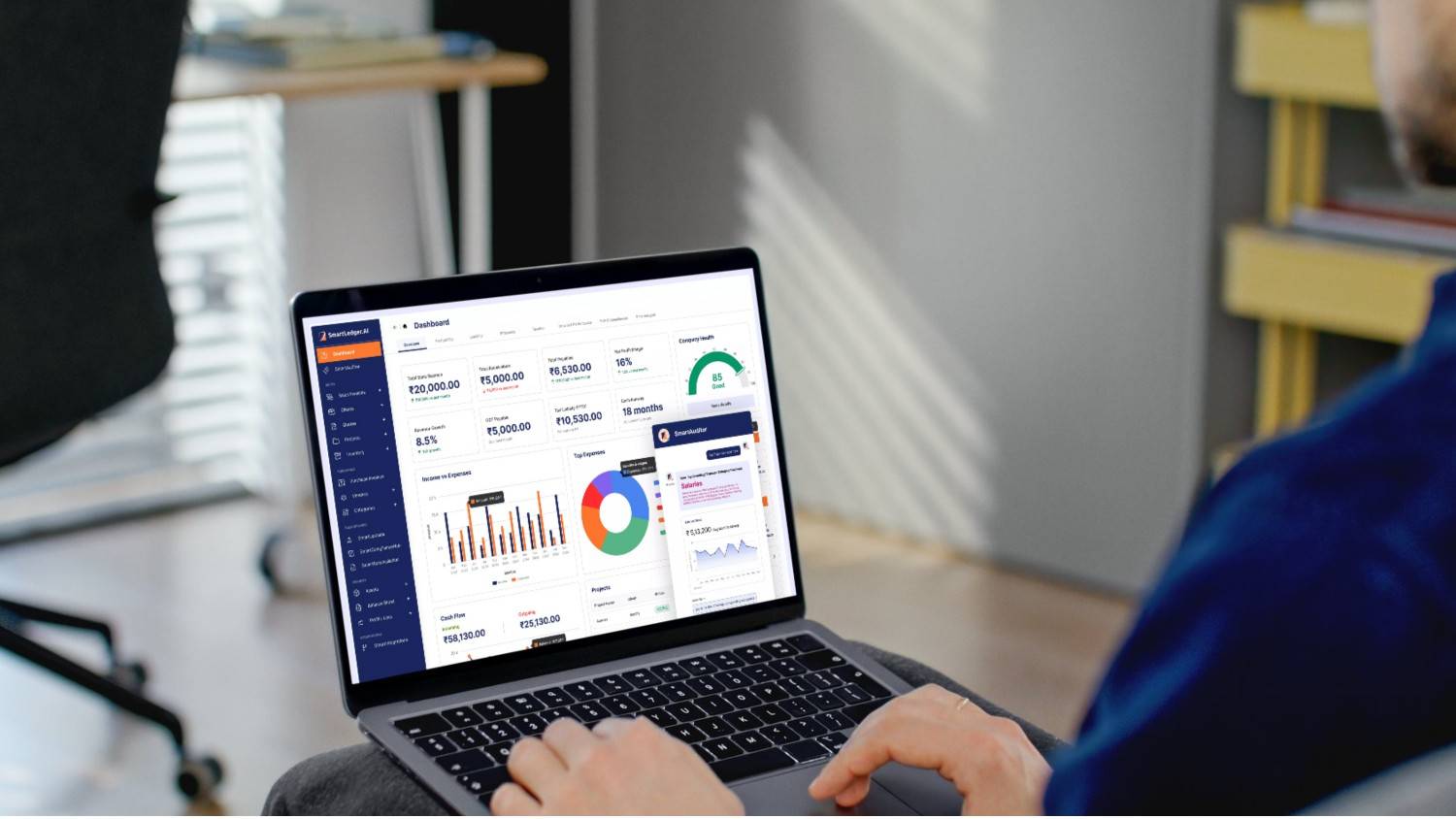

.webp)
How AI is Revolutionizing Financial Operations for Corporates
Introduction
Artificial intelligence (AI) is reshaping corporate finance, driving efficiency, automation, and smarter decision-making. Companies are leveraging AI-powered tools to streamline operations, minimize errors, and enhance financial performance. From fraud detection to predictive analytics, AI is becoming an indispensable tool for CFOs and financial teams worldwide.
This blog explores how AI is transforming financial operations, highlighting key applications in automation, risk management, compliance, and investment strategies.
The Rise of AI in Corporate Finance
AI in finance isn’t just about futuristic algorithms—it’s already making an impact today. Businesses are using machine learning, robotic process automation (RPA), and advanced analytics to automate tasks, analyze data in real time, and make informed strategic decisions.
Corporations are adopting AI for several reasons: it improves efficiency by automating manual processes, enhances accuracy in financial reporting, strengthens fraud detection, and provides predictive insights that help businesses make data-driven decisions.
AI-Powered Automation in Financial Operations
One of the most immediate benefits of AI in finance is automation. Routine tasks like invoice processing, payment reconciliation, and payroll calculations can be handled seamlessly by AI, reducing the burden on human teams and eliminating costly errors.
For instance, AI-driven expense management tools can track spending patterns, flag unusual transactions, and optimize budgets in real time. Similarly, payroll processing is simplified with AI-powered systems that automatically calculate salaries, taxes, and compliance requirements, while also answering employee queries through chatbots.
Smarter Financial Forecasting with AI
Predictive analytics is another area where AI is making a significant impact. By analyzing historical data, AI-powered models can forecast market trends, revenue fluctuations, and investment risks. This enables CFOs and financial planners to anticipate challenges and seize opportunities before they arise.
AI also enhances real-time financial reporting, allowing companies to track key performance indicators (KPIs), revenue trends, and budget performance instantly. Advanced AI-driven data visualization tools transform raw financial data into interactive dashboards, making complex financial insights accessible to decision-makers.
.webp)
AI in Risk Management and Fraud Detection
Risk management is a critical aspect of corporate finance, and AI is strengthening this domain like never before. AI-driven fraud detection systems can analyze transactions in real time, identifying suspicious activity and preventing financial losses. Machine learning models continuously evolve, adapting to new fraud patterns and cybersecurity threats.
When it comes to credit risk assessment, AI goes beyond traditional models by analyzing alternative data sources, such as social media activity and transaction history. This enables businesses to create a more accurate risk profile for customers and partners, minimizing financial exposure.
AI-Driven Investment Strategies
AI isn’t just managing corporate finances—it’s also optimizing investment strategies. Algorithmic trading, powered by AI, can analyze vast amounts of market data in milliseconds and execute trades at the best possible prices.
Additionally, AI uses natural language processing (NLP) to assess market sentiment by analyzing news, social media trends, and financial reports. This insight helps investors make informed decisions and adjust their portfolios based on real-time market conditions.
Ensuring Compliance with AI
Regulatory compliance is a constant challenge for financial teams, but AI simplifies this process significantly. AI-powered tools automatically track regulatory updates, monitor compliance risks, and assist in internal audits by identifying discrepancies in transaction logs. AI also streamlines regulatory reporting, ensuring accuracy and reducing manual effort.
Real-World AI Success Stories in Finance
Many companies are already harnessing AI for financial operations. JP Morgan’s AI-powered Contract Intelligence (COiN) system processes thousands of financial contracts within minutes, reducing legal and operational risks. Fintech startups like Stripe and Square use AI to detect fraud, automate customer verification, and enhance transaction security. Even small and medium-sized enterprises (SMEs) are adopting AI-driven tools like SmartLedger.AI to automate accounting and tax compliance.
Challenges in AI Adoption
Despite its advantages, AI adoption in corporate finance comes with challenges. Data privacy and security concerns remain top priorities, as AI relies on large datasets that must be protected from breaches. Implementation costs can be high, requiring investment in infrastructure and training. Additionally, ethical considerations around AI-driven decision-making—such as bias and lack of transparency—must be addressed.
The Future of AI in Corporate Finance
Looking ahead, AI in finance will continue to evolve. Explainable AI (XAI) will enhance transparency in decision-making, while AI-powered ESG (Environmental, Social, and Governance) reporting will help corporations meet sustainability goals. The rise of AI in decentralized finance (DeFi) and blockchain technology will further reshape financial ecosystems.
Conclusion
AI is revolutionizing corporate financial operations, offering unmatched efficiency, accuracy, and strategic insight. Whether through automation, predictive analytics, risk management, or investment optimization, AI is becoming an essential tool for modern businesses. Companies that embrace AI-driven financial tools will gain a competitive edge, ensuring smarter, data-driven financial management in the years to come.
The future of corporate finance isn’t just digital—it’s AI-powered.



.webp)
.webp)













.svg)
%201%20(2).jpg)
%201%20(2).webp)
%20(2).webp)

.webp)
